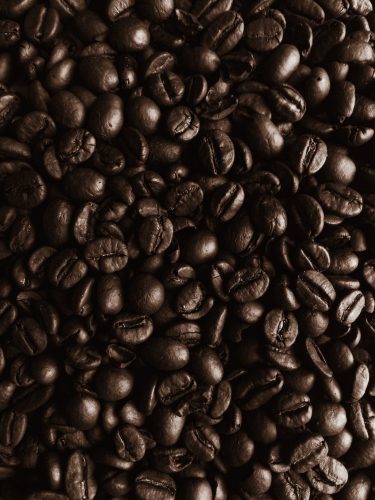For some of us, that first cup of coffee is something that we look forward to first thing in the morning, thanks to the way it picks us up and gets us ready for the day.
However, there are some people that find that they are sensitive to the caffeine found in coffee, so any exposure can leave them feeling bad.
That’s why decaffeinated coffee (or decafe coffee) is a very popular way to experience the smooth coffee flavor without feeling the overstimulation that caffeine is responsible for.
Decaf Coffee – Everything You Need To Know

If you have questions like how is coffee decaffeinated or how is decaffeinated coffee made, then you’re at the right place. We will take you through the process of decaffeinating coffee, and explain why it may or may not be good for you.
Best Decaf Coffee 2018 Recommendations
Chart coming soon!
What Is Caffeine?

Caffeine is a naturally occurring molecule that is found in the coffee plant, as well as tea leaves, cocoa beans, and guarana.
Acting as a central nervous stimulant, caffeine works by preventing adenosine (a molecule responsible for causing drowsiness) from binding to its cognate receptor in the brain, thus keeping you awake and alert.
Caffeine is so well known for this action, that many people consume it daily to increase their mental alertness and improve their productivity.
In caffeine-sensitive people, even small amounts can cause adverse effects such as headaches, insomnia, and heart palpitations. These people have to find a way to avoid caffeine at all costs.
For coffee lovers, this can be a difficult challenge, and finding ways to experience the beverage they love can be tough.
How Much Caffeine Is In Coffee?
The amount of caffeine that is found in coffee and other caffeinated beverages varies; however, the ballpark figure that seems to be common among coffee brands. An average cup of coffee will contain around 100 milligrams of caffeine.
This number can be as high as 500 milligrams in some brands, and is totally dependent on the type of coffee bean used, the roasting process, whether the coffee is instant or fresh brewed, and the serving size.
While decaffeinated coffee might sound like the perfect solution to avoiding caffeine, you must be aware that even after the decaffeinating process, a small amount of caffeine is likely to remain.
Highly sensitive individuals may wish to avoid coffee altogether, as these small amounts of around 3 milligrams can still cause adverse effects in some people.
The amount of caffeine that remains in decaffeinated coffee depends on the decaffeination process, which we will discuss below.
How is Coffee Decaffeinated – The Decaffeination Process
How is decaffeinated coffee made?
The decaffeination process extracts up to around 97% the caffeine from the coffee beans while they are in their unroasted state.
This can produce coffee that contains most of its molecules in their unchanged forms, just without caffeine. The four processes are described below:
#1. Direct Solvent Decaffeination
The direct method of decaffeination is the most common process used today. First, the beans are steamed so that their pores are opened, and then they are soaked in an organic solvent that binds only to the caffeine. The solvent-caffeine compound is then removed by another round of steaming before they are then dried and roasted.
#2. Indirect Solvent Decaffeination
In order to remove caffeine from coffee beans, solvents are often used. In the indirect-solvent method, the beans are soaked for several hours to extract the caffeine, flavor, and oils from the beans.
The water is removed, then treated with a solvent such as methylene chloride or ethyl acetate, which then selectively binds to the caffeine.
The solvent-caffeine compound is then evaporated from the liquid, leaving only the flavors and oils in the solution. The beans are then soaked in the water so that they can regain the flavors and oils.
#3. Swiss Water Decaffeination
Due to the use of solvents in the most common decaffeination processes, a newer method was developed that uses a more natural approach to caffeine removal.
The Swiss water process uses green coffee extract, which is a solution that contains all of the water-soluble components of coffee, except for caffeine.
There is a gradient pressure difference to selectively migrate caffeine from the coffee beans into the green coffee extract. This process leaves all of the other molecules and compounds intact within the coffee bean.
#4. Carbon Dioxide Decaffeination
Carbon dioxide, when used as an extraction method, has become immensely popular. This is because of the ease of the process, as well as the safety.
Carbon dioxide is able to bind selectively with caffeine, thanks to the fact that the compound behaves like both a gas and a liquid at high pressures.
This method of extraction leaves the flavors and oils intact within the bean, like the Swiss water process does, and is considered a natural decaffeination process.
Is Decaffeinated Coffee Good For You?
Decaffeinated coffee earned itself a bad reputation in the mid 1970’s, when it was discovered that the solvent used in the caffeine extraction method, benzene, was carcinogenic.
However, this method is no longer used for decaffeination, and the modern techniques that we discussed above are much safer alternatives.
The truth of the matter is that decaffeinated coffee is actually very good for you in a number of ways. People who experience heartburn and acid reflux when drinking coffee may find that these symptoms are reduced when using decaf.
Risks of certain cancers, such as rectal cancer, have been shown to be reduced in people who drink decaffeinated coffee.
Conclusion
If you love the taste of coffee, but find yourself too sensitive to the caffeine to really enjoy the experience, then you might find that decaffeinated coffee is the solution for you.
As the caffeine is almost completely extracted, you’ll find that any adverse effects that you experience are vastly reduced, allowing you to enjoy coffee whenever you want, without worry.
If you’ve always wondered whether decaf is for you, then we hope this guide has given you the information you need to make that decision.